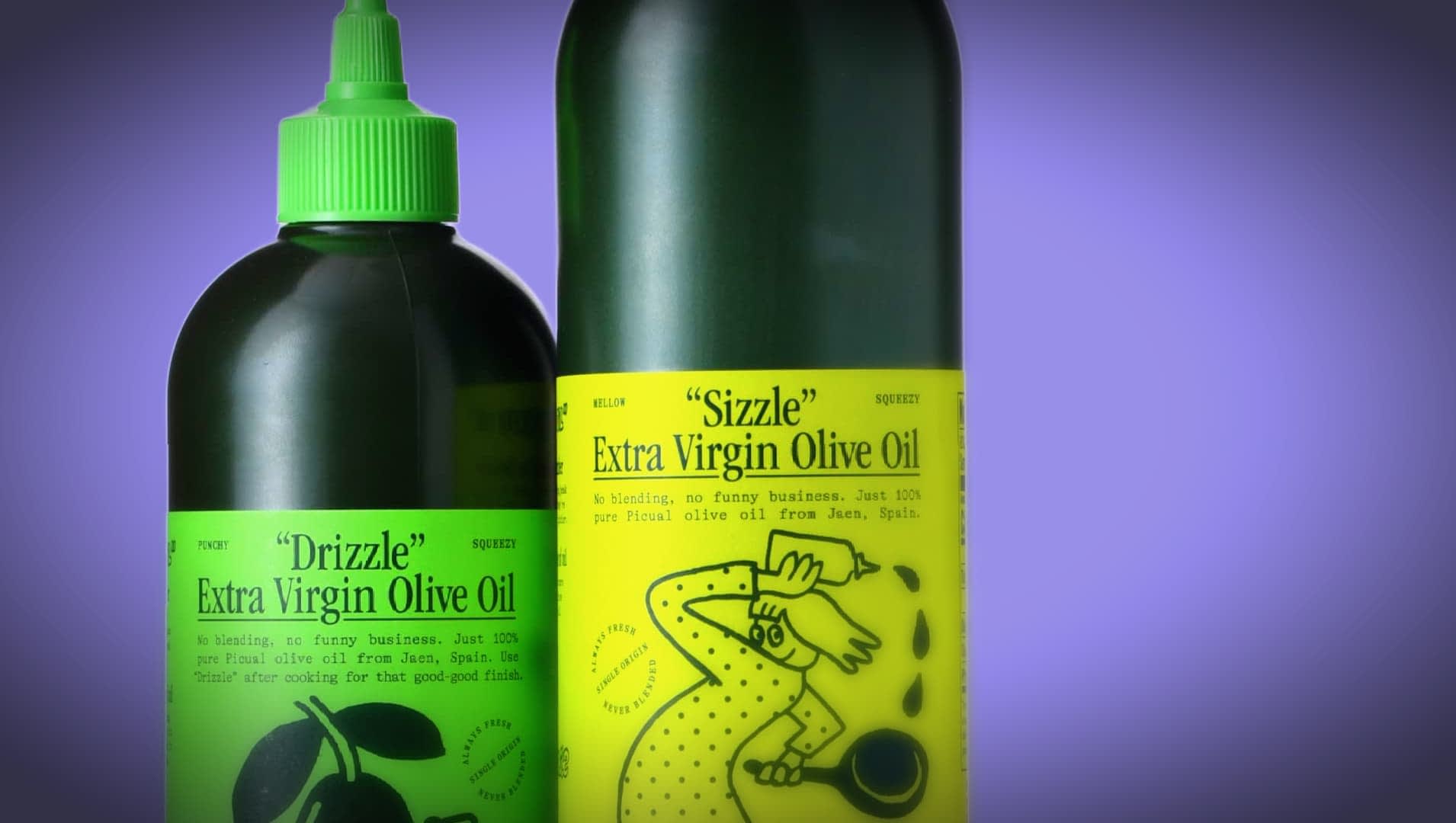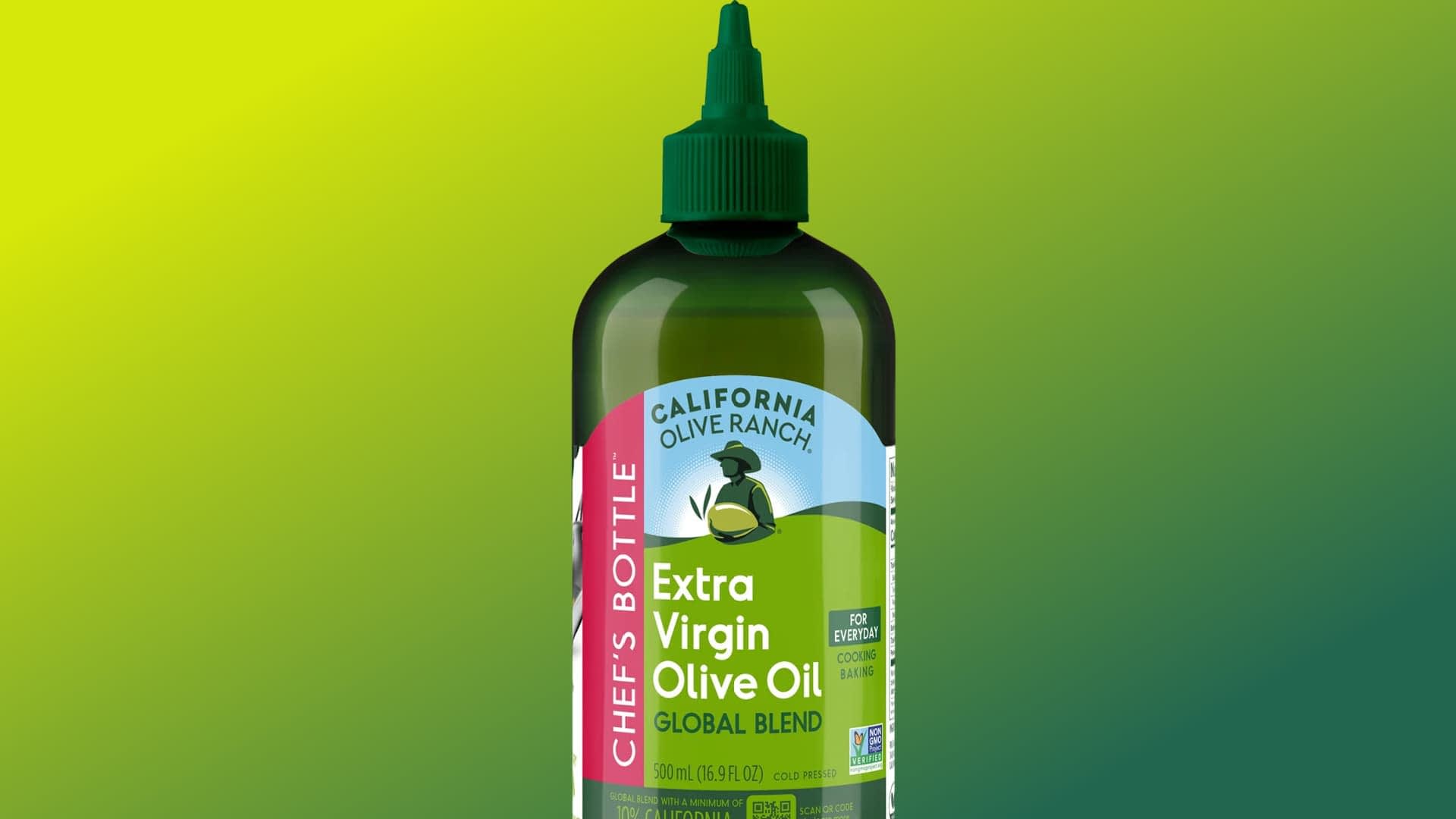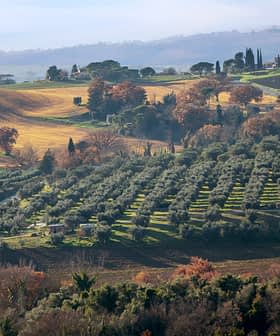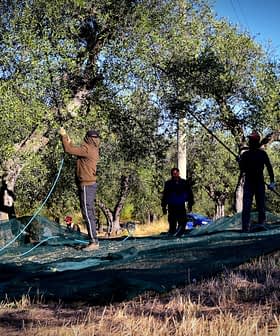U.S. Consumers Embrace Olive Oil in Squeeze Bottles
Despite the growing popularity of squeeze bottles for their convenience, some question the potential impact on olive oil quality and the environmental burden of the packaging.
 OOT Illustration
OOT Illustration  8.6K reads
8.6K readsThe squeeze bottle olive oil format has become a popular trend in the United States, with Graza leading the way in retail success and projected sales of $60 million by 2024, prompting other companies like California Olive Ranch to adopt the format as well. While some producers have concerns about the quality and sustainability of plastic squeeze bottles for olive oil, Graza has introduced aluminum canned refills for its products in response to these environmental concerns, while California Olive Ranch uses a recyclable PET plastic for their squeeze bottles.
The squeeze bottle olive oil format has been a growing trend in the United States in the past four years, and some of the country’s largest and most well-known brands have taken notice.
While chefs have been filling plastic squeeze bottles with olive oil for cooking and dressing for decades, the founders of Graza adapted the format for retail consumers to astonishing levels of success.
You get a lot of people who love the plastic and love the squeeze bottle because it’s fun and versatile, and then you have very vocal groups of people who hate it.
According to Bloomberg, the company’s sales were on track to reach $60 (€56.8) million by the end of 2024, a $10 (€9.5) million increase from what Graza projected at the beginning of the year.
Graza has also managed to get its two flagship brands on the shelves of large retailers, including Whole Foods and Costco, and reportedly plans to enter Target and Walmart, the country’s largest olive oil retailer.

(Photo: Olive Oil Times)
California Olive Ranch (COR), the country’s largest olive oil producer, is among the companies that have watched Graza’s success and decided to adopt the format.
“Graza showed up, and the squeeze bottle format has proven successful, so we jumped in pretty quickly,” chief executive Michael Fox told Olive Oil Times.
California Olive Ranch introduced squeeze bottle brands, which it calls “Chef’s Bottles” in tribute to the format’s origins, in several retail locations earlier in the year, including a 100-percent California option.
“We launched it with one partner, and it’s done well here in California,” Fox said. “The format is being seen across the store, and consumers like its functionality. They use the squeeze format for food preparations where consumers want more control.”
Fox estimated that COR’s squeeze bottle brands sell at comparable levels to Graza. “We’re optimistic about the format,” he said.
Overall, Fox anticipates that squeeze bottles will continue to grow in popularity as they become more accepted by consumers.

He added that the format also has the potential to attract a younger demographic and may help dispel the persistent myth that olive oil cannot be used for cooking.
“I think this product skews young, which is good because I think it’s bringing in a new demographic,” he said. “Graza has done a great job marketing to younger people online, too.”
“They’re attracting new consumers, which is good for the category,” Fox added. “The question is, how much do those consumers shop and cook at home versus eat out.”
While Graza’s sales performance shows an appetite for the squeeze bottle, some producers are concerned about quality and sustainability.
Katerina Mountanos, founder of Kosterina, told Modern Retail that she would not put her Greek-origin extra virgin olive oil in plastic due to quality concerns.
“We would never do a squeeze bottle,” she said. “Olive oil should never be packaged in plastic.”
Mountanos added that the format works in commercial kitchens because chefs decant the olive oil into the plastic squeeze bottles daily, which means that the olive oil is not oxidizing in the format over time.
“They’re refilling the bottle every day from a large tin,” she said. “It’s not sitting for six to 12 months in a [plastic squeeze] bottle.”
Aside from quality, Mountanos said that the plastic used in the squeeze bottles is bad for the environment and cannot be recycled in some places.
While Graza insists that its matte-finished plastic is recyclable, the company tacitly acknowledged this concern by introducing aluminum canned refills for its two flagship brands. (Graza declined to comment for this article.)
For its part, Fox said COR uses a translucent PET plastic that can be widely recycled across the United States.
“Plastic is very polarizing,” Fox told Modern Retail. “You get a lot of people who love the plastic and love the squeeze bottle because it’s fun and versatile, and then you have very vocal groups of people who hate it.”
According to the U.S. Environmental Protection Agency, any plastic or aluminum that has not been thoroughly cleaned and dried cannot be recycled.
Share this article









